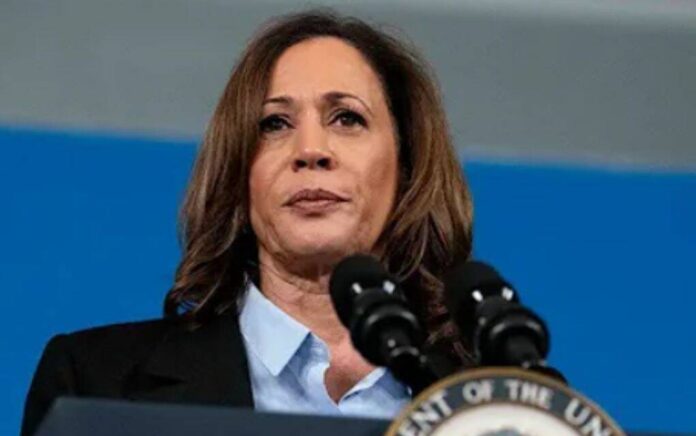
Harris needs every vote she can get. This election will be one of the closest in decades.
But Kamala Harris suffers a brutal betrayal from this group of loyal voters.
In a surprising turn, a recent poll revealed that former President Donald Trump has garnered more support from Arab Americans than Vice President Kamala Harris, a shift that breaks from traditional voting patterns within this key demographic.
The Arab American Institute’s latest survey shows Trump leading Harris 46% to 42% among likely Arab American voters, as Harris attempts to win back the group amid tensions surrounding the ongoing Israel-Hamas war.
While Trump’s margin narrows when considering the broader group of Arab Americans, including those less likely to vote, he still holds a slight lead, 42% to 41%. Historically, Arab Americans have favored Democrats, with the party enjoying a consistent two-to-one advantage over Republicans in recent years.
For instance, President Biden secured roughly 60% of Arab American support in the 2020 election. However, that support has dwindled significantly following the tragic events of October 7, 2023, which ignited the current conflict between Israel and Hamas.
Enthusiasm among Arab American voters has also waned, with only 63% of respondents expressing eagerness to vote in the upcoming election, a notable drop from the 80% turnout typically seen in this community.
Arab Americans’ shift away from the Democratic Party seems to be rooted in frustration over the administration’s support for Israel, leading to a rise in uncommitted voters during the Democratic primary.
Harris, now at the top of the Democratic ticket, has inherited these challenges as a result of the administration’s position on the conflict. “In our thirty years of polling Arab American voters, we have not witnessed anything like the role that the war on Gaza is having on voter behavior,” stated the Arab American Institute.
The survey reveals that if Harris were to advocate for an immediate ceasefire, 54% of Arab Americans would support her, including 72% of Arab American Muslims.
Trump, who is also eyeing an opportunity to gain traction, could earn the backing of 50% of Arab Americans if he, too, called for a ceasefire. However, both Harris and Biden have been clear in their stance that a ceasefire requires agreement from both parties in the conflict.
The fallout for Democrats is not limited to the presidential race. The poll also found that 46% of Arab Americans favor a Republican-controlled Congress, compared to 43% who support Democrats. Additionally, party identification among Arab Americans is now evenly split, with 38% aligning with each major party.
This shift has been a source of frustration for some Democrats, especially given the GOP’s longstanding support for Israel. During his 2016 campaign, Trump famously proposed a ban on individuals from certain muslim countries entering the U.S.
Despite this, Trump’s gains among Arab American voters could be particularly problematic for Harris in critical swing states like Michigan, home to the nation’s largest Arab American population.
Harris currently holds a slim 1.9% lead over Trump in Michigan, according to the RealClearPolitics polling average. But concerns are mounting among Democrats about her prospects there. “I’m not feeling my best right now about where we are on Kamala Harris in a place like Michigan,” Rep. Elissa Slotkin (D-Mich.) reportedly said during a recent fundraiser.
Michigan is home to roughly 200,000 Arab Americans, and their influence extends to other battleground states like Georgia, which has a population of 100,000 Arab Americans. The Harris campaign has been working to engage this community in the lead-up to the November 5 election.
The Arab American Institute’s poll surveyed 500 Arab Americans between September 9 and September 20, with a margin of error of 4.5%.
Other recent polls have echoed similar trends, with Trump showing a surge in support among Arab and Muslim American voters. For example, a Rainey Center survey conducted last month found that Trump had 30% support among Muslim American voters, compared to Harris’ 62%.
As both campaigns prepare for the final stretch, the battle for Arab American voters could prove pivotal, particularly in swing states like Michigan where their support could determine the outcome of the 2024 election.
Stay tuned to The Federalist Wire.


















